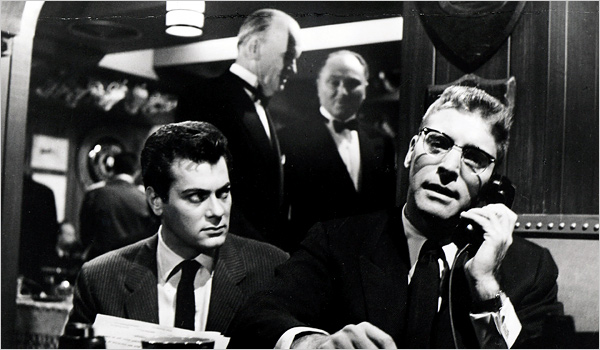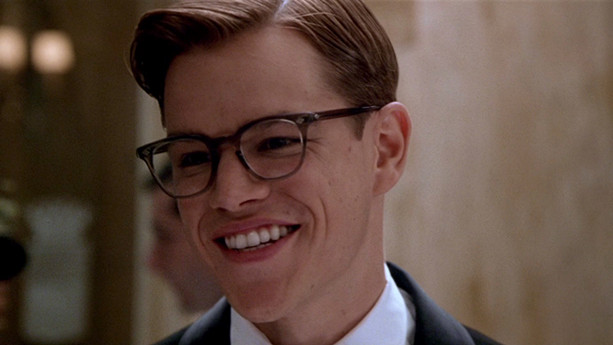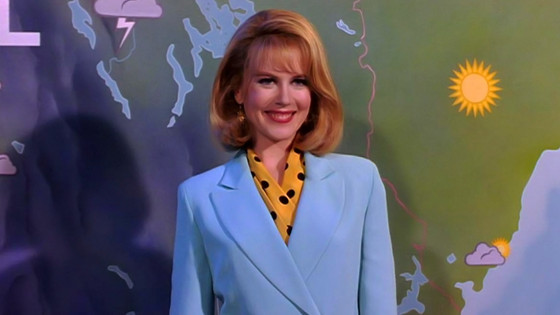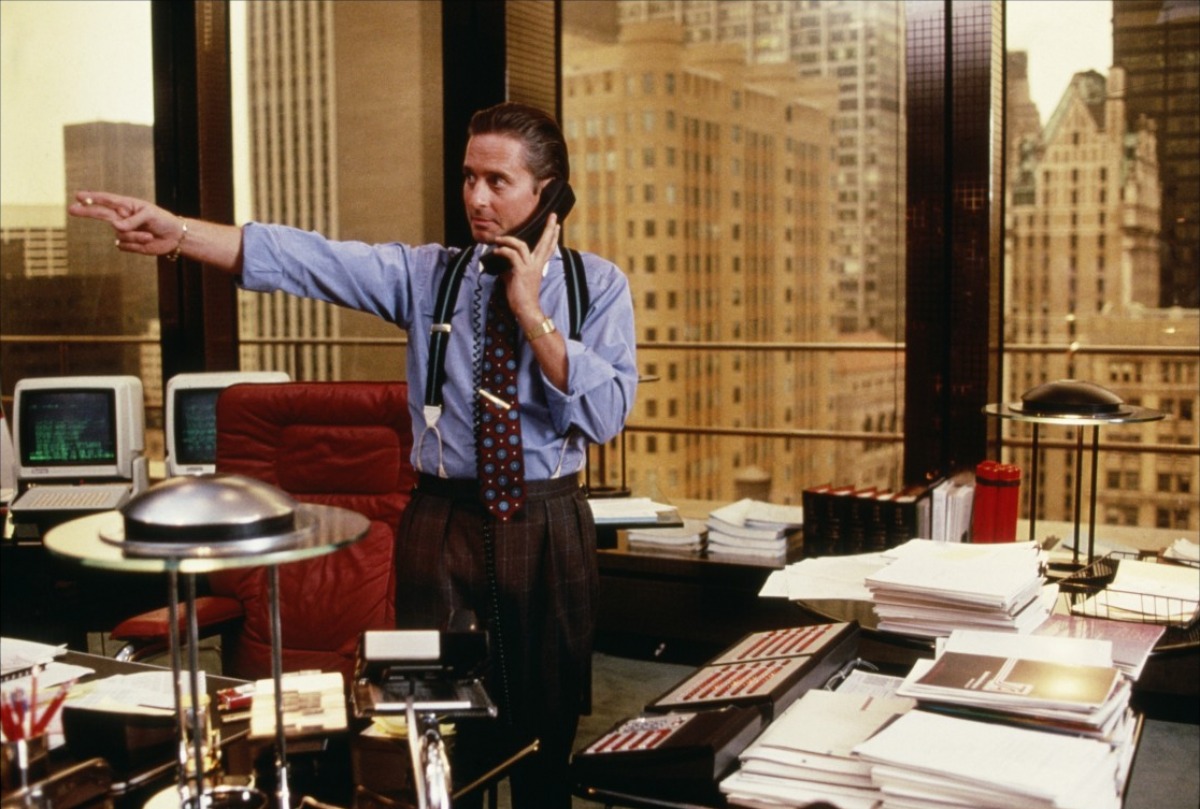6. The Sweet Smell of Success (Alexander Mackendrick, 1957)

Less obvious in its connections to Nightcrawler than most of the other films on this list, The Sweet Smell of Success is nonetheless a terrific picture, with a matching dark atmosphere and themes of corruption in the media. Burt Lancaster stars as the egotistical newspaper giant J. J. Hunsecker who runs a corrupt media empire.
Tony Curtis plays opposite him as press agent Sidney Falco who is is forced to comply with Hunsecker’s demands in order to get preferential treatment concerning page space and exposure in the newspaper. Falco’s main task is separating Hunsecker’s sister from her jazz musician boyfriend, but when Hunsecker’s practices prove too dark, Falco wants a way out.
There are some surface level connections between the two films. Both show the corruption and intense crave for fame that the media can inspire in people. In The Sweet Smell of Success, both of the main characters show this theme.
Falco shows how an innocent, desperate man can be swept into the world of corruption while Hunsecker shows what the final form of this corruption would look like. To top off the incredible performances is terrific cinematography by the great James Wong Howe and a swinging soundtrack.
7. The Talented Mr. Ripley (Anthony Minghella, 1999)

Based on a 1955 novel of the same name, Anthony Minghella’s electric thriller is a chilling character study of a highly manipulative man. Matt Damon stars in one of his most intriguing performances as a young man, Tom Ripley, who turns into a con man and trickster when the perfect opportunity presents itself to him.
After being mistakenly sent by the father of a rich young man, Dickie Greenleaf, to return him home, Ripley begins parasitically implanting himself in Greenleaf’s life and only latches on harder as he gets acquainted with the posh lifestyle. Expectedly, as the lies continue, the more drastic measures have to be taken in order to keep up the charade.
The character arcs of Ripley and Bloom are quite similar. Both start out as down on their luck young men who happen upon to a chance opportunity, grab it and do whatever they can to hold on. Their relative normality at the start and their dark descent into criminality is quite shocking.
Most powerful about both films is the way that the filmmakers make you relate to the characters and understand their actions, showing that possibly anyone under similar circumstances could degenerate into the same level of criminality and cunning.
8. Taxi Driver (Martin Scorsese, 1976)

The second film on this list by Martin Scorsese also features Robert De Niro in the central role, this time playing a disturbed veteran Travis Bickle who becomes obsessed with the crime of the city around him. He wanders the city at night, frequenting porn theaters and interacting with the criminals of the street.
Notably, he takes under his wing a child prostitute named Iris, played by a young Jodie Foster, and tries to turn her life around. The few times he socializes with respectable people it always ends disastrously. The more he roams the city, the stronger its grip gets on him and his disturbed thoughts evolve into violent actions.
In a way, the films are opposites in the way they show the effect of the criminal world on humans. In Taxi Driver, Travis Bickle becomes increasingly disgusted with the vice infesting the city and it poisons him into thinking that the only way to fight this culture is by stooping to its level.
In Nightcrawler, the crime that Bloom witnesses instills an opposite reaction. He is drawn in with a morbid curiosity and slowly corrupts him with the possibilities it carries. While the impact of these environments on the characters is of a different nature, the end effect is similar making the pair of movies an interesting study on the corruption of morals by society.
9. To Die For (Gus Van Sant, 1995)

One of Gus Van Sant’s most compelling and criminally underrated films stars Nicole Kidman in a stunning turn as a housewife gone bad. Kidman plays Suzanne Stone-Maretto, an ambitious reporter who uses her charm to achieve her dreams of fame.
The more she accomplishes, however, the more resistance she meets from her husband played by Matt Dillon who wants her to spend time starting her family. Seeing that he will only get in her way, she seduces a high school student, Jimmy played by Joaquin Phoenix, to murder her husband, but, predictably plans don’t go as smoothly as she’d like.
Kidman’s Stone has obviously many similarities to Gyllenhaal’s Bloom. Both chase the rush of the media and their ambition only grows as they achieve success. They also are quick to abandon society’s morals when a situation arises.
While Stone is a less nuanced and realistic of a character, the message she packs is just as powerful, if not made more direct and obvious by the exaggerated nature of her actions. For some reason, this gem of a film has not caught on with audiences despite terrific performances and a very captivating story but I think it deserves to be rediscovered.
10. Wall Street (Oliver Stone, 1987)

This iconic portrait of 1980s excess and greed stars Charlie Sheen as an ambitious rookie stockbroker Bud Fox who is relentless in making name for himself. In a bold move, Fox arrives at Wall Street legend Gordon Gekko’s office with cigars to try and force him to listen to his ideas.
When his planned stock options do not impress Gekko, Fox desperately provides insider information which he received in passing from his father. Gekko, played by Michael Douglas, then employs Fox, making him spy and find more insider information, causing both of them to make vast amounts of money. As their process continues, however, Fox starts to grow a conscience and the SEC starts snooping.
Unlike most of the other films on this list, neither the main character or the plot have much in common with Nightcrawler; Charlie Sheen’s character is misled but redeemable and the stories are worlds apart. The similarity lies in Douglas’s infamous Gekko, an unrelenting and unprincipled man, perhaps what Nightcrawler’s Bloom would be like in the future when he inevitably makes it big.
The knack that both characters have of making people do whatever they want and their immeasurable ambition make them both extremely dangerous, as well as very memorable characters. If Bloom was your favorite part of Nightcrawler, then be sure to check out Wall Street for another complex antihero.
Author Bio: Matthew Benbenek is an undergraduate Mechanical Engineering student at the University of Wisconsin – Madison. He has a passion for film, music and literature and, when not watching movies, is an amateur director and violin player.